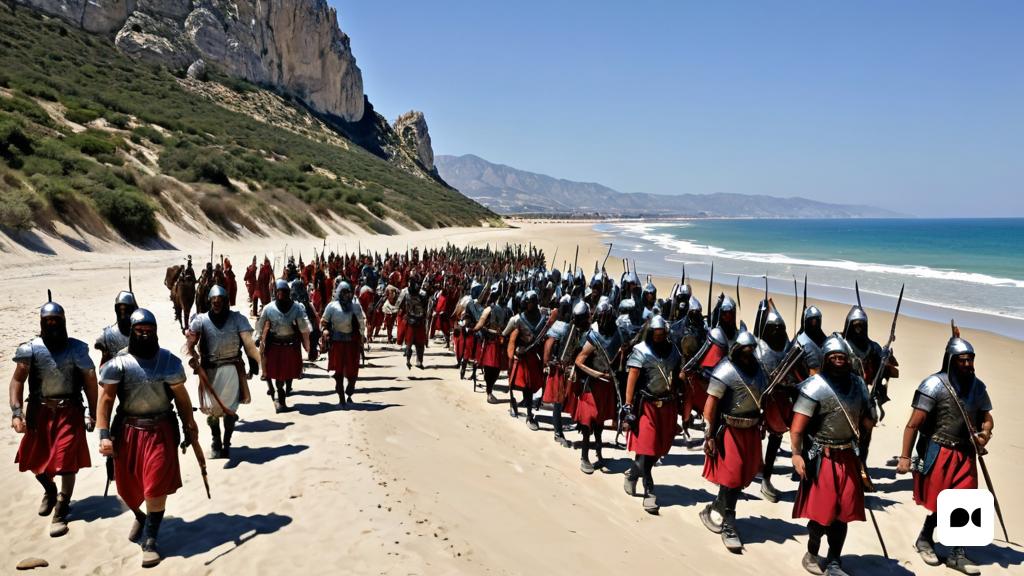The impact of the arrival of the Arab armies to the Iberian Peninsula
More than 1,300 years ago, Arab armies led by General Tāriq ibn Ziyād crossed the Strait of Gibraltar and landed on the Iberian Peninsula. Although initially the military operation did not have the purpose of conquest, the devastating defeat of the Spanish Visigothic army on the sands of the Guadalete River and the mysterious disappearance of King Rodrigo changed the course of history. Tāriq and his lieutenant Mussa, disobeying the orders of the caliph of Damascus, entered the Peninsula and conquered it through submission pacts, laying the foundations of a State that would evolve in a unique and genuine way.
Al-Andalus and its influence on the history of medieval Europe
Al-Andalus, first an emirate and then a caliphate, together with its capital Córdoba, became its own particular world within the Arab universe. The fusion between Arab culture, with influences from the ancient Byzantine territories of the eastern Mediterranean, and the ancient indigenous culture, resulted in a primordial impact on the history of medieval Europe. During the early Middle Ages, Córdoba was the most populous, rich, cultured and luxurious city in the West, standing out with a population of 500,000 inhabitants at a time when other European cities had a fraction of that figure.
Multiculturalism and syncretism in al-Andalus
Although the Arab and Berber invaders were always a minority, their influence on culture and art was significant. The strength of the indigenous element was reflected in all cultural manifestations, and Córdoba, far from being an Arab city, was Andalusian, genuinely representing the result of the process of syncretism. The city housed Arab, Berber, Jewish, Muladi and mysterious eunuch communities of Slavic origin, flourishing as a centre of power, knowledge and water culture in the Middle Ages.
The true legacy of Córdoba and al-Andalus
Córdoba and al-Andalus, far from the Spanish nationalist discourse, represent an essential chapter in the history of Europe. The city was a center of architecture, urban planning, medicine, science, astronomy, philosophy and water culture, standing out for its multiculturalism and its pioneering role in medieval Europe. This legacy, deliberately hidden, invites us to discover the true history of Córdoba and al-Andalus, unraveling the mysteries that nationalist historiography has falsely presented.

